The ‘left-behinds’: In communities like Mansfield and Dagenham, the blame game is the only one in town
One is a former mining stronghold north of Nottingham, the other – once home to a massive Ford plant – sits on the borders of east London and Essex. Both voted Leave in 2016, each has seen deprivation rise and immigration grow – and anger towards politicians explode. Nick Ryan hears strikingly similar stories

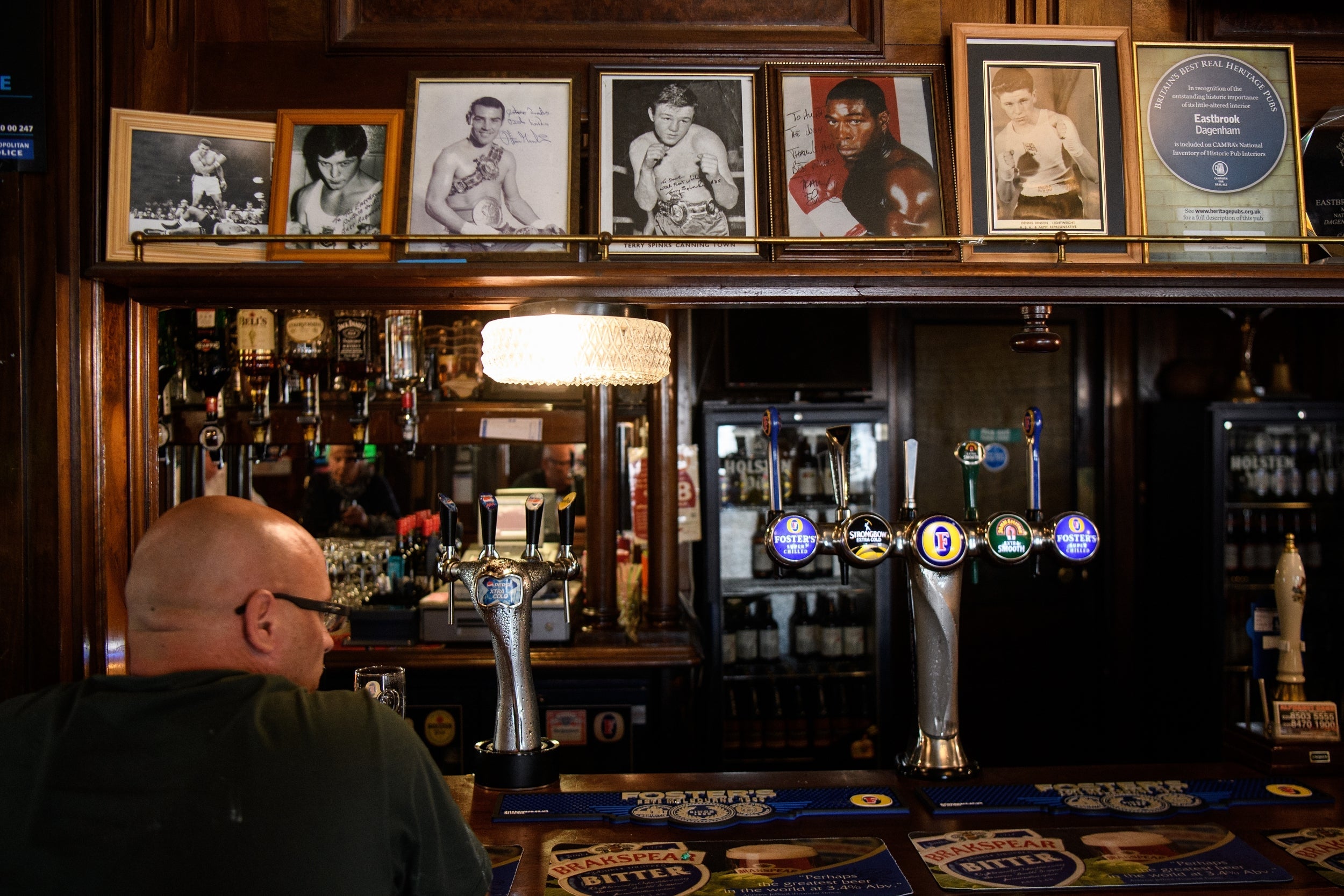
Some say that Mansfield sparkles in the sunlight, thanks to the sandstone in the local brick. But today the rain heaves down, darkening the already approaching dusk. Just a few travellers disembark from the branch line that serves Nottingham, the metropole lying half an hour to the south, to which this former mining community seems tethered like some half-forgotten satellite.
The station building is long closed. The only beacon is a nearby Costa Coffee, its giant windows framed against the failing light. Recent history has not been kind to Mansfield. A Nottinghamshire market town of about 100,000, it can boast a proud industrial heritage. Coal mines once dotted the nearby landscape. Textiles, engineering and brewing all offered substantial local employ. No more.
During the bitter miners’ strike of 1984, many of the pits here remained open. But that only staved off what was to come. At one time Nottinghamshire had 42 collieries and 40,000 miners, making it one of the most successful coalfields in Europe. All are now closed. The legacy of the mines is here, of course: in Mansfield’s statues, in the stories still shared by the men who once worked in the pits, and preserved for posterity in the town’s quirky museum. But the wealth coal once brought in? Gone.
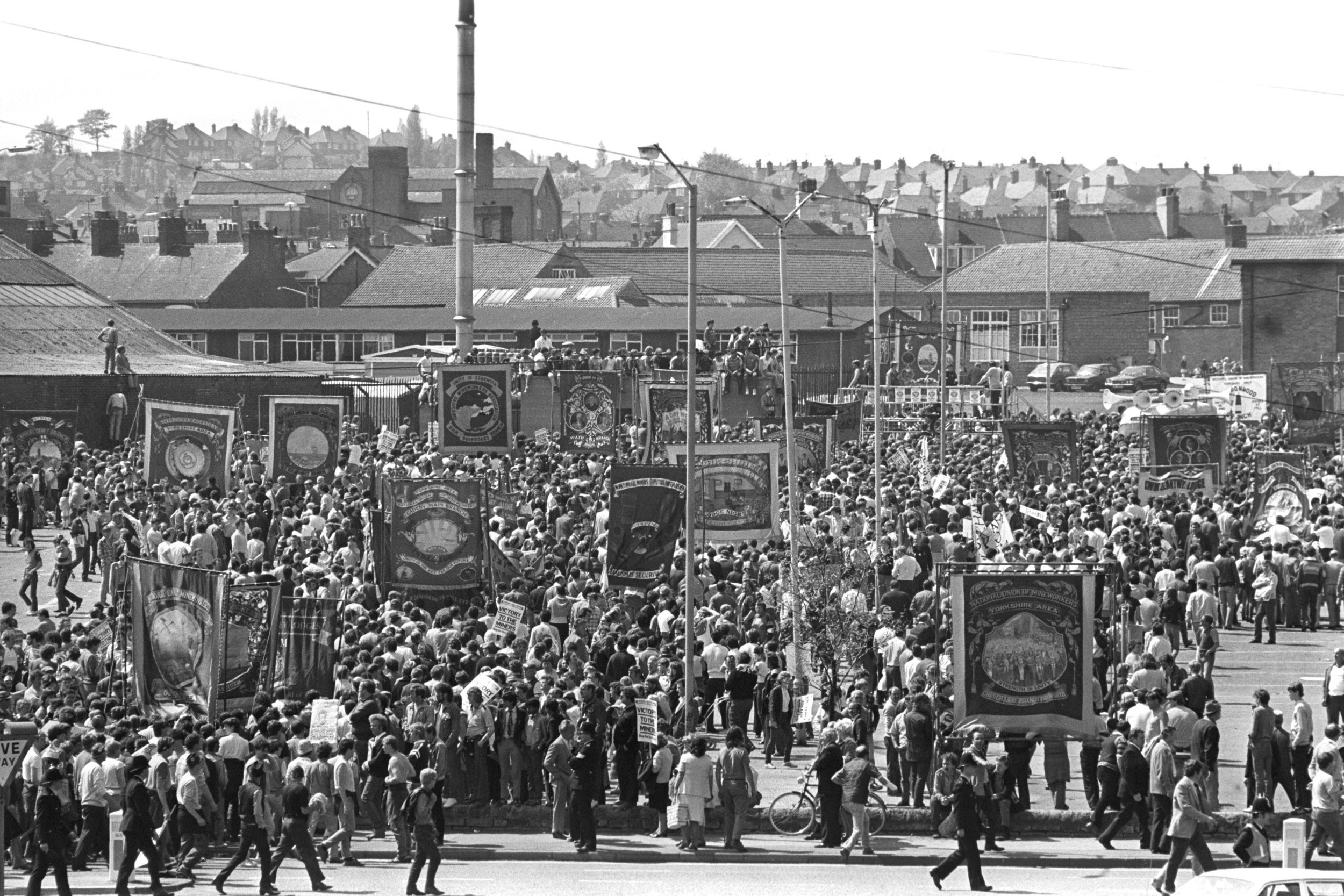
In 2016 a whopping 71 per cent of Mansfield’s citizens voted to leave the European Union, the seventh-highest Leave vote in the country. The town ranks as one of the most deprived areas of England, with an average weekly wage standing at £394.80 (compared to the national average of £529 in 2018). In the social mobility index compiled by the government’s Social Mobility Commission, Mansfield and two of its neighbouring local authorities occupy three of the 10 bottom places.
Put simply, many of the well-paid, long-term jobs have gone and in their place joblessness and part-time, zero-hour roles have been taking their place. This is a place of in-work poverty. When the referendum campaign hit, people here described it as a one-issue debate: immigration.
“Immigration came quite late to the town,” local journalist Andy-Done Johnson said in 2018. “It didn’t have quite the same influx as Nottingham, for example. Five or six years ago, the Sports Direct head office just opened over the border in Derbyshire and that brought in a significant number of immigrant workers from largely eastern Europe, in particular Poland. It created a delayed reaction of ‘these foreigners coming over here’ and a mild, simmering racism.”
But is that still the reality? Even before you visit, you can read of anger and despair in the comments section on the Facebook page of the local newspaper, The Chad. It has reported on rising homelessness, food bank usage, a local drugs problem, a litany of issues with the council.
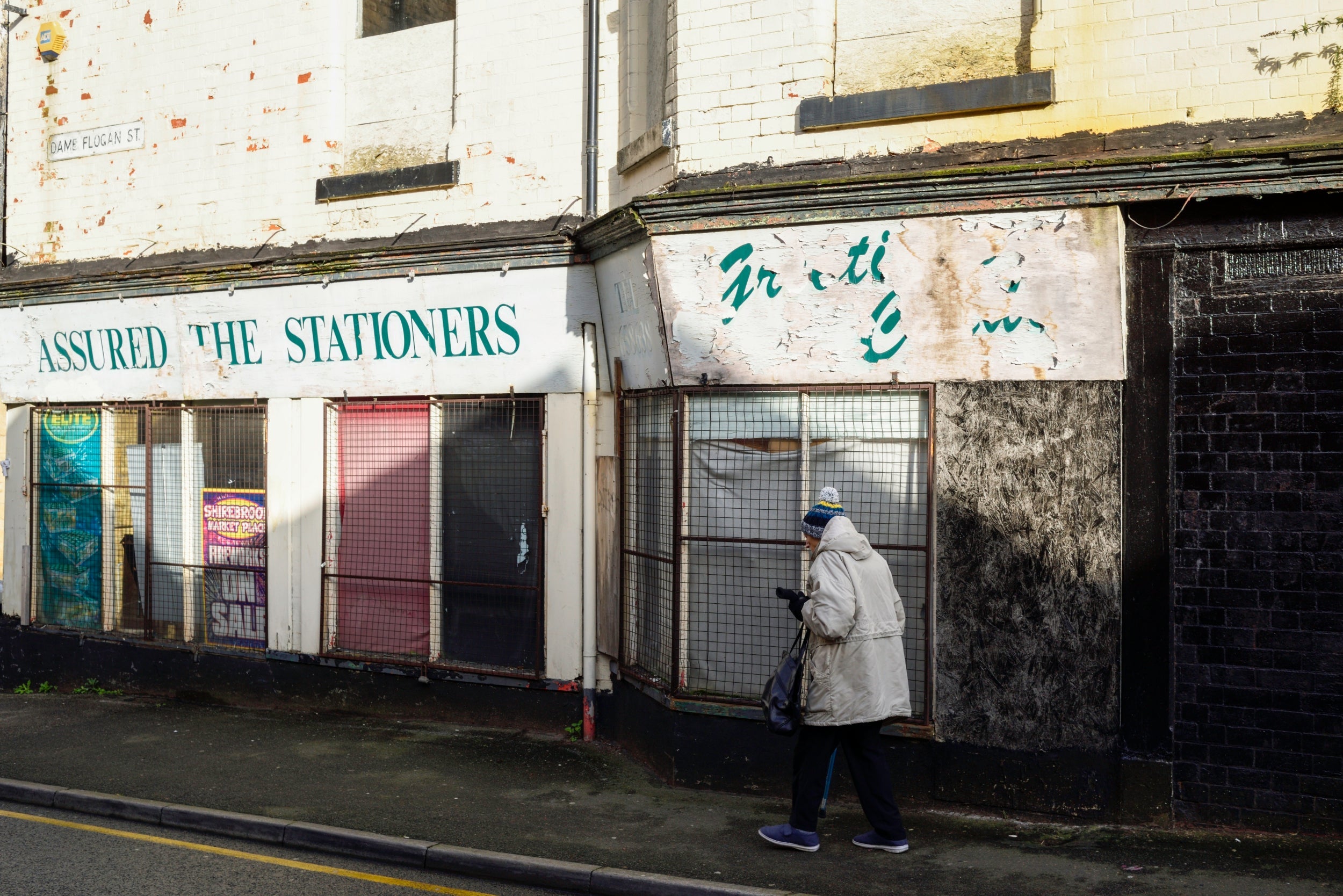
The Conservatives secured a shock win here in 2017, the first time the party had won since the seat was created in 1885. Yet the signs were already there for Labour, after the pits started closing. The town has voted in independent councillors for several years now – they are the largest group on Mansfield council – and, previously, an independent mayor (subject of much discussion among those I met) who lost to Labour by two votes in the 2019 spring mayoral elections. Kate Allsop had been planning to stand for the Brexit Party, but had to stand down when Nigel Farage announced he wouldn’t put up candidates against incumbent Tories (which didn’t stop the Brexit Party buying a wraparound advert in the local newspaper when I visited).
A tough town
“I love my job. It grows on you. It’s a tough town. But I do like it. I like it a lot.”
Jon Ball is the lead journalist in Mansfield for The Chad newspaper. If anyone should have a handle on life here, it’s him. I’ve come to the offices of the paper during difficult times, as regional newspapers close down and publishers consolidate their empires. What makes it a tough town, though?
“The economic background. When you look at it, it’s consistently ranked as one of the most deprived areas. You look at its life expectancy, smoking rates, its obesity rates, it’s always at the wrong end of the tables. Time and time again, average salaries too, it’s always at the wrong end of where you’d like to be on the tables.”
This is often covered in stories inside The Chad.
“It’s angry here. Angry,” says Jessica Dallison, one of two young female reporters on the paper here. “People just don’t believe anything that they’re told anymore by people in power,” adds Danielle Andrews, Dallison’s colleague, peering over her computer. “There’s been that many promises made: that they’re going to regenerate the town centre, we’re gonna get you this, get you X, Y and Z, and they’ve not seen it happen.”
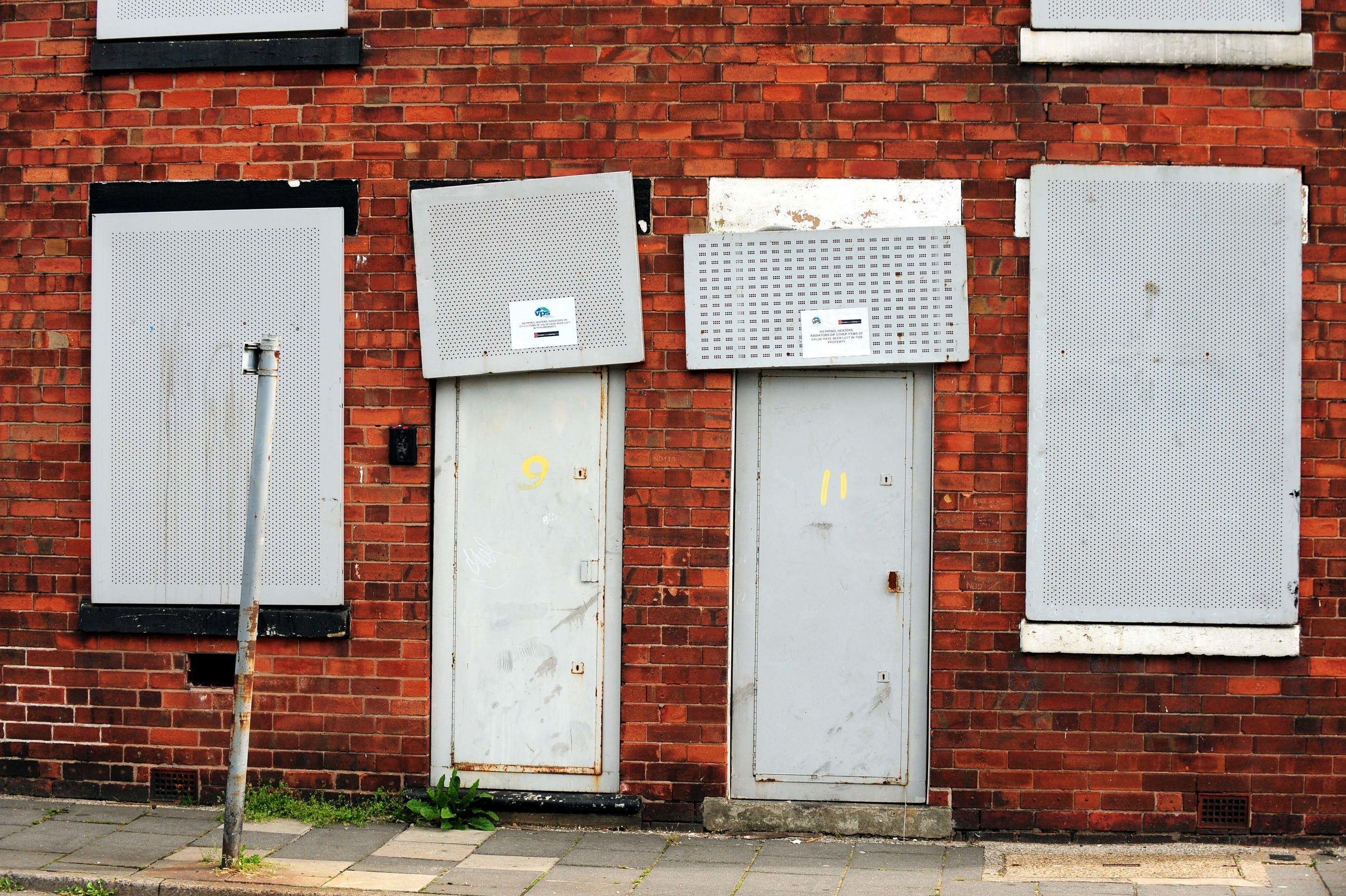
“There was a massive Chinese investment they were talking about a few years ago,” mentions Jon. “But it’s very hard to replace thousands of jobs lost. People don’t always want to talk about that, but they always move back to that. It’s what this whole area was built on.” He points to part of the building behind us. “This was an old brewery. That’s gone. The other big employers round here – they’ve just all gone.”
They mention other problems. An epidemic of legal highs – mamba and spice – which saw people collapsing in streets, passed out between the stalls of the famous market square. There was an explosion in the number of homeless who appeared in the area, too, which some I spoke to blamed on a well-intentioned council initiative (“homeless people elsewhere were being told to come to Mansfield and they’ll look after you”).
As I walk past empty shops windows, through the lacklustre shopping mall – testament to past optimism – I mull over Jon’s parting words. Tomorrow he’s being relocated to another district (“not my choice”) and both the other journalists I spoke to are also being reassigned. The bureau itself may then close.
It’s a hollowing out of local media all-too-familiar to those of us who’ve witnessed the decline of regional newspapers. There are fewer people left to cover courts, to attend council meetings, to question MPs, to dig deeper and reveal potential conflicts of interest or corruption. It all seems part of a bigger picture, a tapestry being woven across many communities of forgotten Britain.
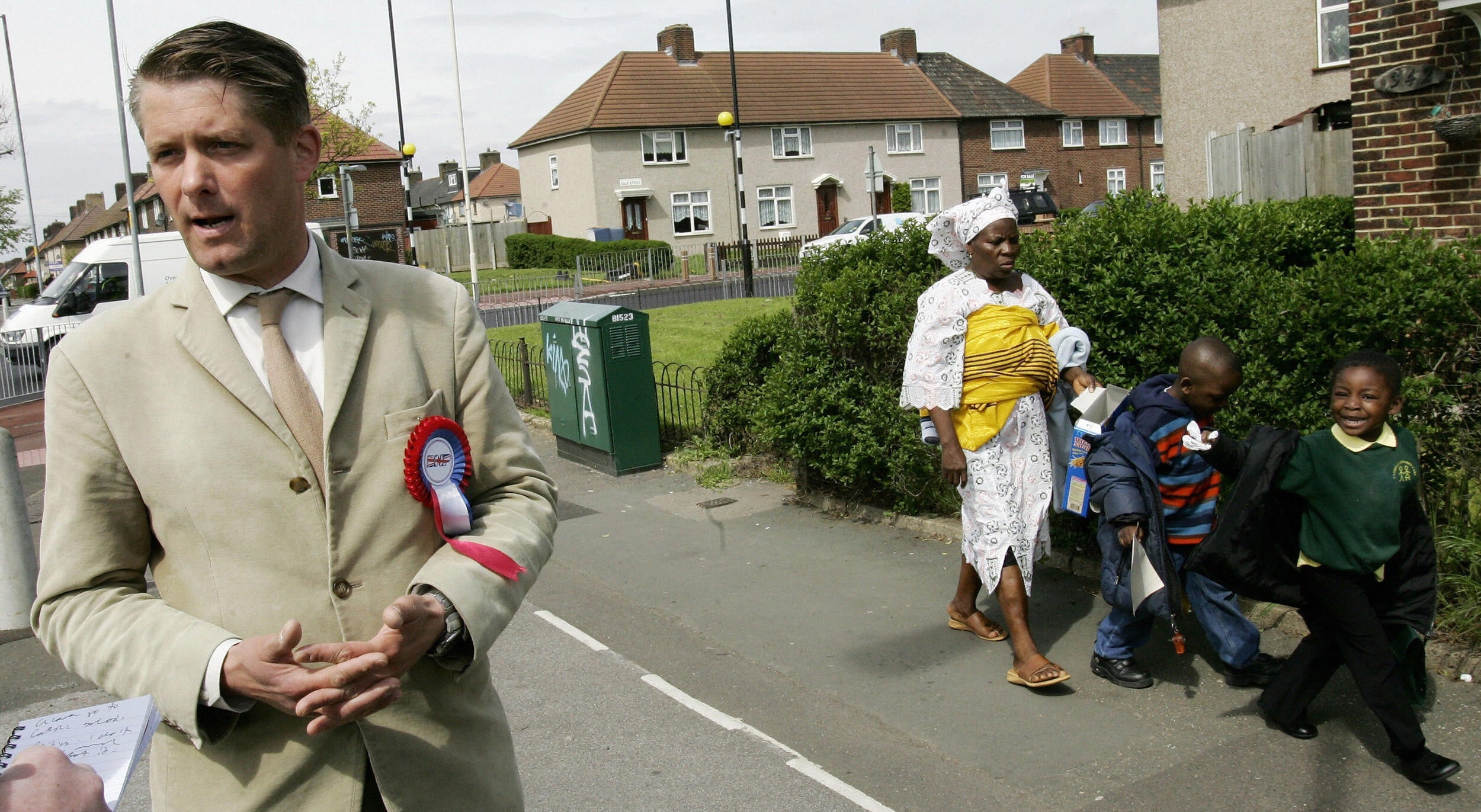
Homes fit for heroes
“This country is becoming a third world country ... I’ve had to sell my council house to support my daughter. What generation wants to see that? It’s s**t, mate, absolute s**t.”
“You’re effectively surrendering.”
“What else can you do?” comes the reply.
“Stand and fight for your country, like your forefathers did.”
“As far as I’m concerned, f***ing shoot the lot.”
These words were spat at me as I travelled deep into the heart of Dagenham, then (and now) one of London’s poorest boroughs. But they were spoken back in 2006, as I convinced the British National Party – then ascendant in the area, taking a dozen seats on the council and electing the far-right artist Richard Barnbrook as a member of the Greater London Assembly – to take me with them around the local estates.
The BNP was defeated in 2010, in part thanks to a HOPE not Hate campaign. But Dagenham, together with its sister area, Barking, is still one of the most deprived boroughs in the capital. Built as a working-class paradise, a giant campaignFord factory brought jobs and security. But then it stopped making cars. And some of the cheapest housing within greater London brought in waves of newer migrants. In the 2001 census, 81 per cent of its residents identified as “white British”. Just 10 years later, that figure had plunged to 49 per cent. White Britons had become a minority.
In 2017 Trust for London’s Poverty Profile highlighted that the borough was the worst for childhood obesity, residents had the second-lowest wages and the second-highest unemployment rate across London, with nearly a third of people paid below the living wage. The 2011 census showed it had the highest percentage of lone parents in the country. And by 2019, government statistics revealed that over half the borough’s neighbourhoods were struggling with high levels of deprivation. Only eight roads in the entire borough were found to be enjoying below-average levels of deprivation.
The area was once viewed as a beacon of hope. Its giant interwar housing estates were built as part of Lloyd George’s vision of “homes fit for heroes” following the end of the First World War. “Those who watched the construction of Becontree were immediately filled with hope of a new world,” said one elderly resident on the Becontree estate, Peter Fisher, as he spoke to the BBC in September. He had lived there for 92 years.
Barking and Dagenham remains the only council in the country where Labour holds every single seat. Yet move just a tad eastwards and the Conservatives have 25 seats on nearby Havering council, with Rainham electing three out of 17 independents too, creating a potential nightmare scenario for John Cruddas, one of the area’s two serving Labour MPs battling to keep their seats.
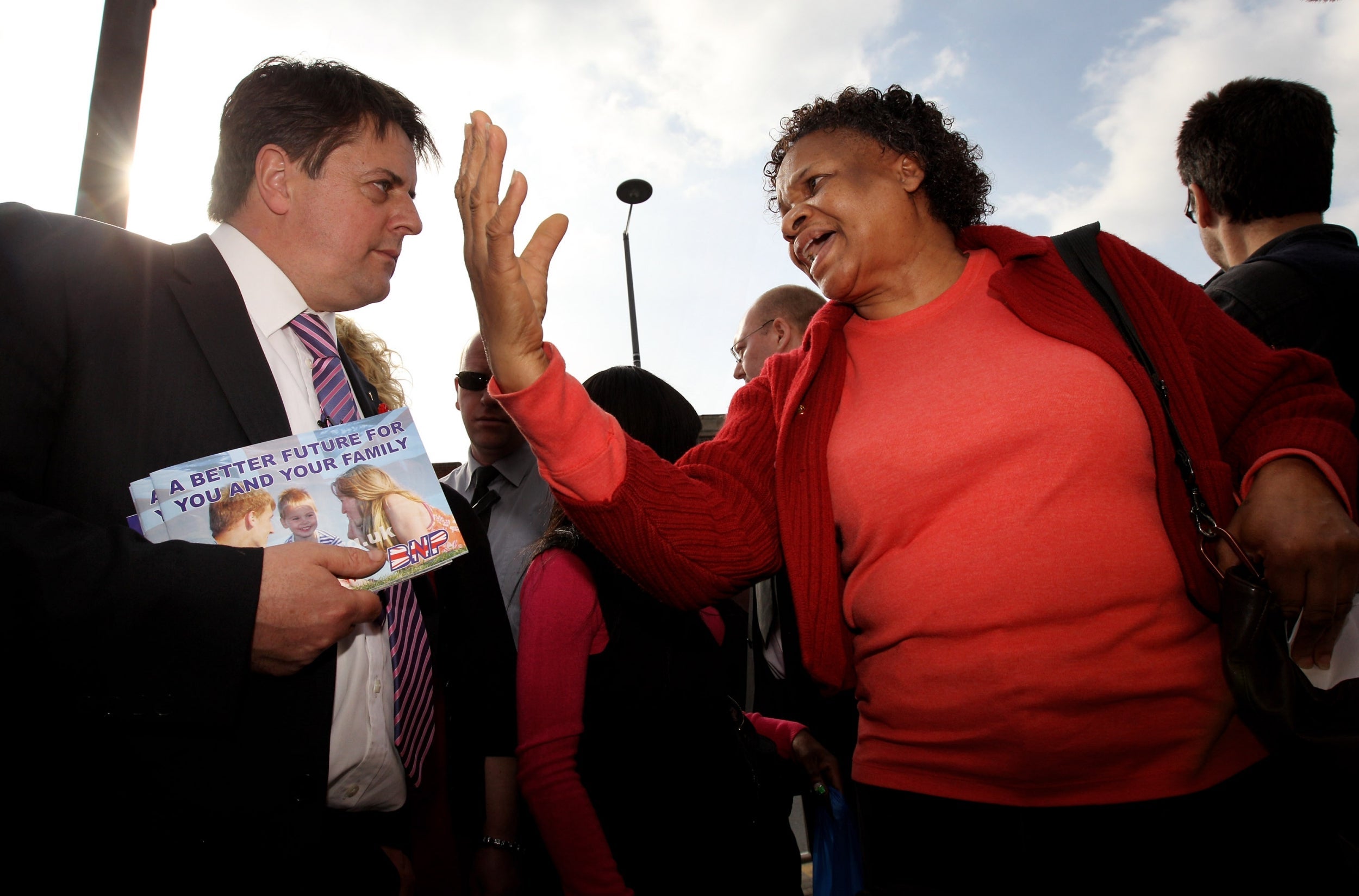
Even a lot of Asians voted Leave
A mild-mannered man with slightly thinning hair, Yousuf Khan, like many British Bengalis I’ve met, grew up in the East End of London and has now followed the trail east, out of the city. “Quite a lot of people have moved in,” he says, as worshippers clatter in and out of the Hedgecock Community Centre in Upney, dragging chairs or preparing trays of sweet food for the Jumu’ah prayers. The local MP for Barking, Margaret Hodge – who had just fought off a bitter reselection battle and was campaigning for the seat she’s held since 1994 – is expected.
“Initially I was going to move to Redbridge but couldn’t find anything more suitable. They say this is one of the best estates in Barking. The school is close by. People here are from all walks of life. Fifty per cent of my friends from Tower Hamlets are here, so I get to see them all often! Even my kids, some of their class friends moved here.”
Like several others I spoke to, Yousuf still works elsewhere (in his case, Tower Hamlets) and mentions the many contacts he has with the African community, other Muslims from different countries, and the Christian community here – some of whom also use this building for their worship on Sundays.
What of the whites, though? He pauses for a second. “There is quite an ageing [white] population here… I’ve noticed the elderly generation are moving on, they’re selling their houses, the Bangladeshis are moving in.”
And the east Europeans? “We get burglaries almost every week. Most of them are carried out by the Romanians or Polish.” Really? “Yeah. In this area, in this ward, people live in the fear of crime. It’s one of the top issues in this area. Most of them are eastern Europeans. Some of them are jumping on the train, doing the burglary and going back.”
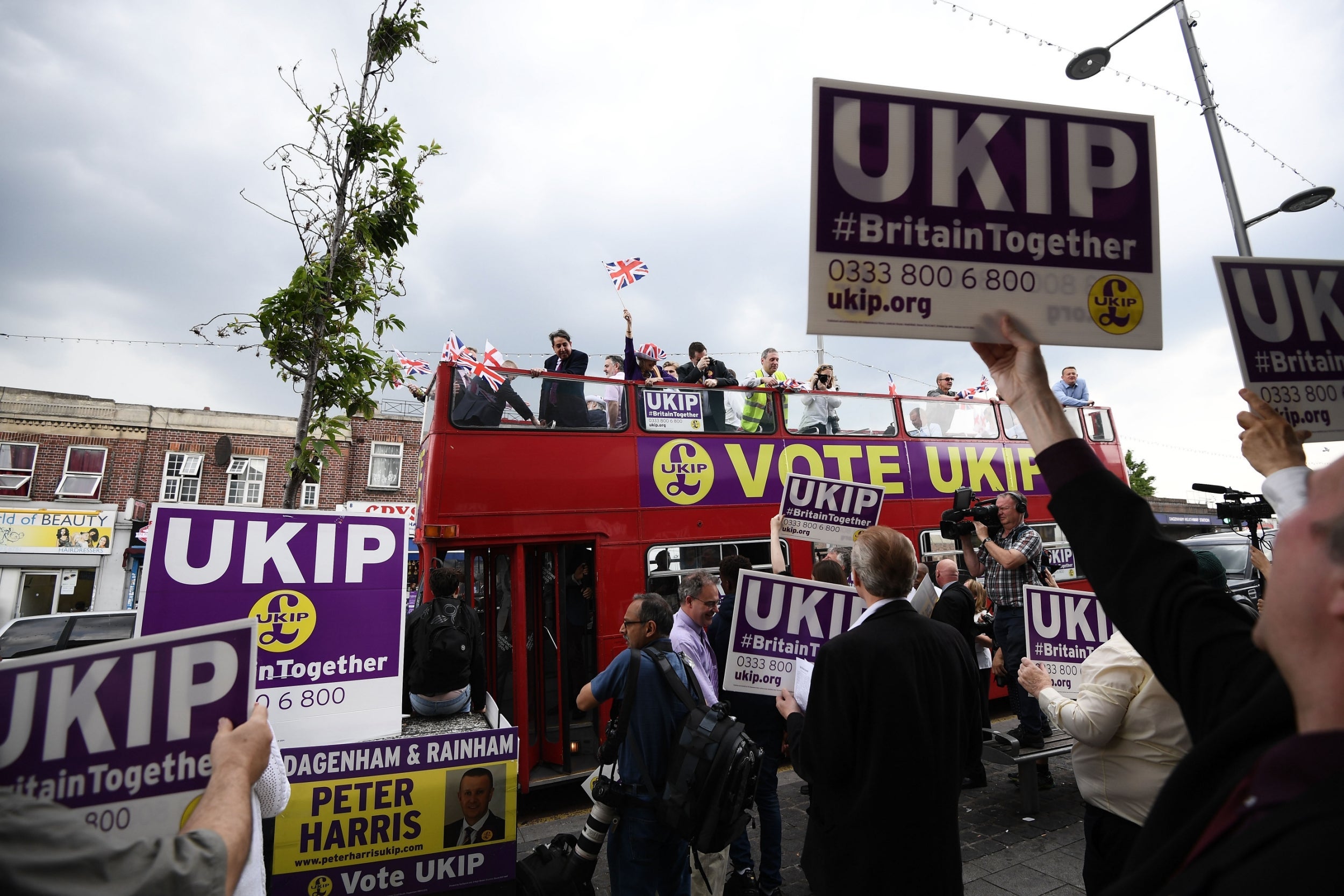
Immigration was a factor in the “complex” reasons behind the Leave vote here, he suggests. “Even a lot of Asians voted Leave. Some of the Asians will say ‘I was born here, some of my kids can’t get an NHS appointment, I have to wait six months for a school place, they’re packed, so I probably have to vote Leave’. I know a lot of people, it’s how they voted.”
He refuses to reveal how he voted. He laughs when I ask, saying, “but I’m not Leave!”
We have to break our conversation, as Margaret Hodge is shepherded in by the worshippers – all men – donning a temporary headscarf to speak to the crowded hall. She talks about the need to stand up to racism and how Brexit is creating animosity on the doorstep, rounding up by mentioning her support for Kashmir and the work she’s doing with (East End MP) Rushnara Ali on the Rohingya issue. All everyone else seems to want to talk about is the site for a new mosque. And car parking.
I manage to convince Hodge’s assistant to let me join them in their car as they race around the borough between meetings. Her seat now includes parts of Dagenham as well as Barking, with the adjacent MP for Dagenham and Rainham, Jon Cruddas, fighting for his political life. (She mutters: “The BNP, they were Jon’s wards and I inherited them.”)
“This is one of the poorest boroughs in outer London,” says Hodge. “Down the years it’s been starved of government resources. Local people don’t want to hear about a lack of local authority budgets or whatever, which is a major issue for the area.”
But then she talks about all the cranes she sees springing up by the Thames. So there is regeneration? “Massive! One of the areas I spend time around is down by the docks, where they’re building 12,000 new homes.”
Her assistant, a young Muslim woman, says it’s one of the largest regeneration projects in Europe. “London is moving eastwards. It’ll go, move,” Hodge waves with her hand, when I allude to the problems of racism and where the white community now fits in.
“I always tell this story,” she says, craning her neck to look back at me. “When I came here 25 years ago from Islington, I came out of the station up there and all I could see was white faces. I couldn’t believe it. It was a culture shock, for me. And then I never met so many great-grandmothers who lived within 10 minutes of their great-grandchildren. Then right-to-buy, the housing got privatised, and that led to the change.”
Hodge smiles, telling me of a Lithuanian man, who after 10 minutes of speaking, said: “‘There’s something you can do for me, Margaret’. I said, what is it? He said: ‘You can get rid of all those Romanians’!”
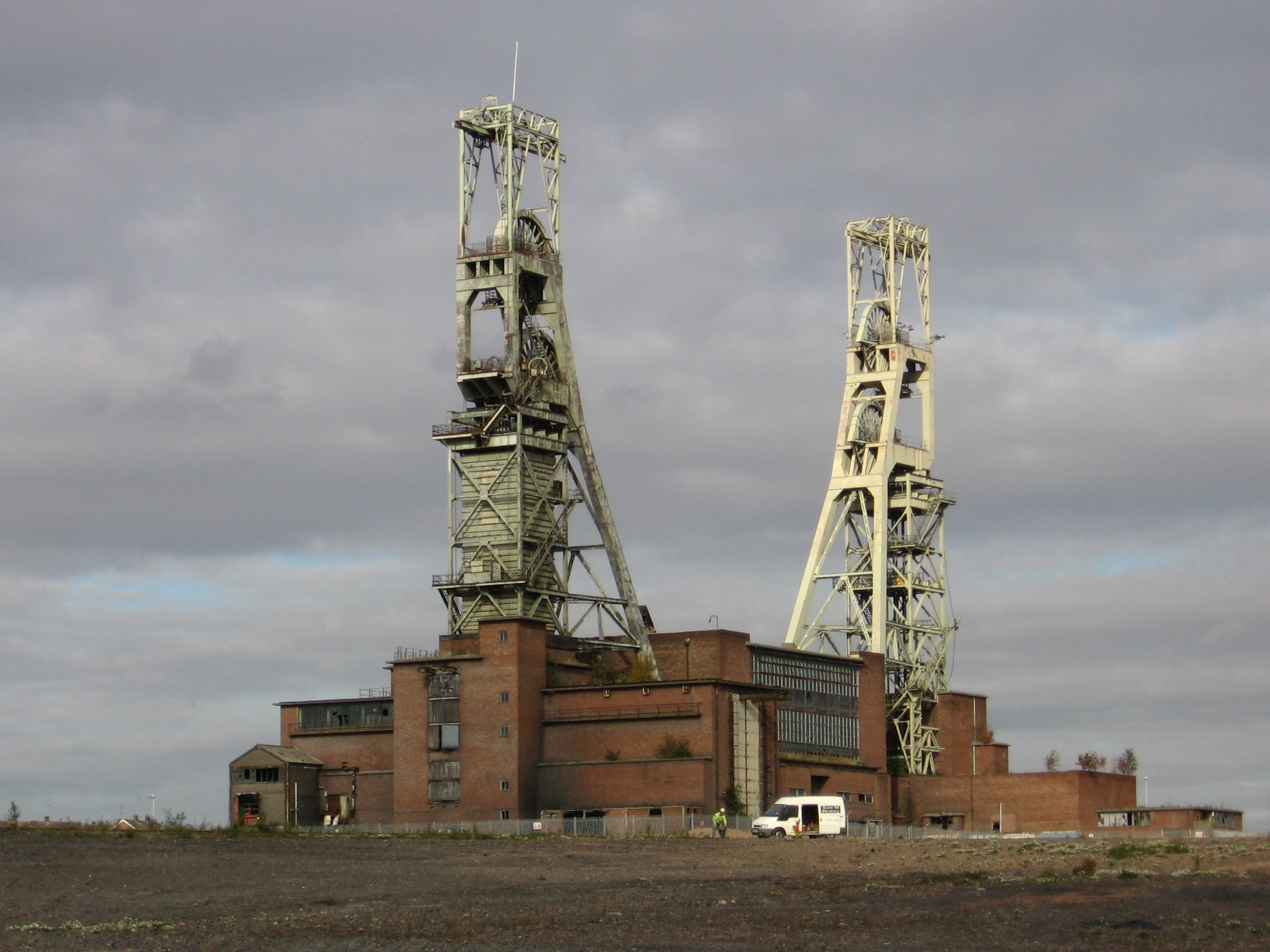
There are no jobs around
In Mansfield, I spend much of a day with Chris Riley, a rep for the local cabbies who’s been vocal in the pages of The Chad, complaining about drivers from other towns descending on the area and unlicensed minicabs illegally roaming around. Some drivers are struggling to make barely £3 or £4 over a shift.
Chris carries himself with shoulders back, he’s precise, a former RAF policeman who spent 15 years living in Northern Ireland after his service days, before returning to his home town. His words echo a sense of nostalgia and anger, but also a belief in industrious self-application and hard work.
“I was born and raised in Mansfield. I understand the local area. When the pits and mines and linen and cotton industry were in full steam, the town was an absolute hive of activity, a really wonderful place to be. Obviously the pits are closed, which caused a massive loss of jobs. So as a community and town, we’ve had to rethink a way of earning a living.”
Speaking as we drive around the area, he points to the market which has been in existence for over 700 years. “My first job as a 12-year-old boy was working for a man there who sold slippers and shoes,” he states, proudly.
He places blame firmly on the local council and its former independent mayor for the economic decline of the area. “They allowed the town to slip into disarray. All they’ve ever done is squabble, internal fighting, blaming other parties.” And the result? “The result is the market is barely in existence.”
He talks of local authority white elephants, of closed communities centres, council overspends, and other things which show how – in his view – the politicians have all screwed up here.
Perhaps inevitably, the talk turns to east Europeans. He recalls taking a young Latvian woman to the town of Shirebrook, just over the border in Derbyshire, where Sports Direct built its central warehouse complex. “She said: ‘You English are going to regret it’. I said what do you mean? ‘You’re allowing the Poles to come into your country’. I’d never met a Polish person at that point. But we saw the result of that five years later. A lot of them were out of work; a lot of them were drinking on the streets. And it started to spread.”
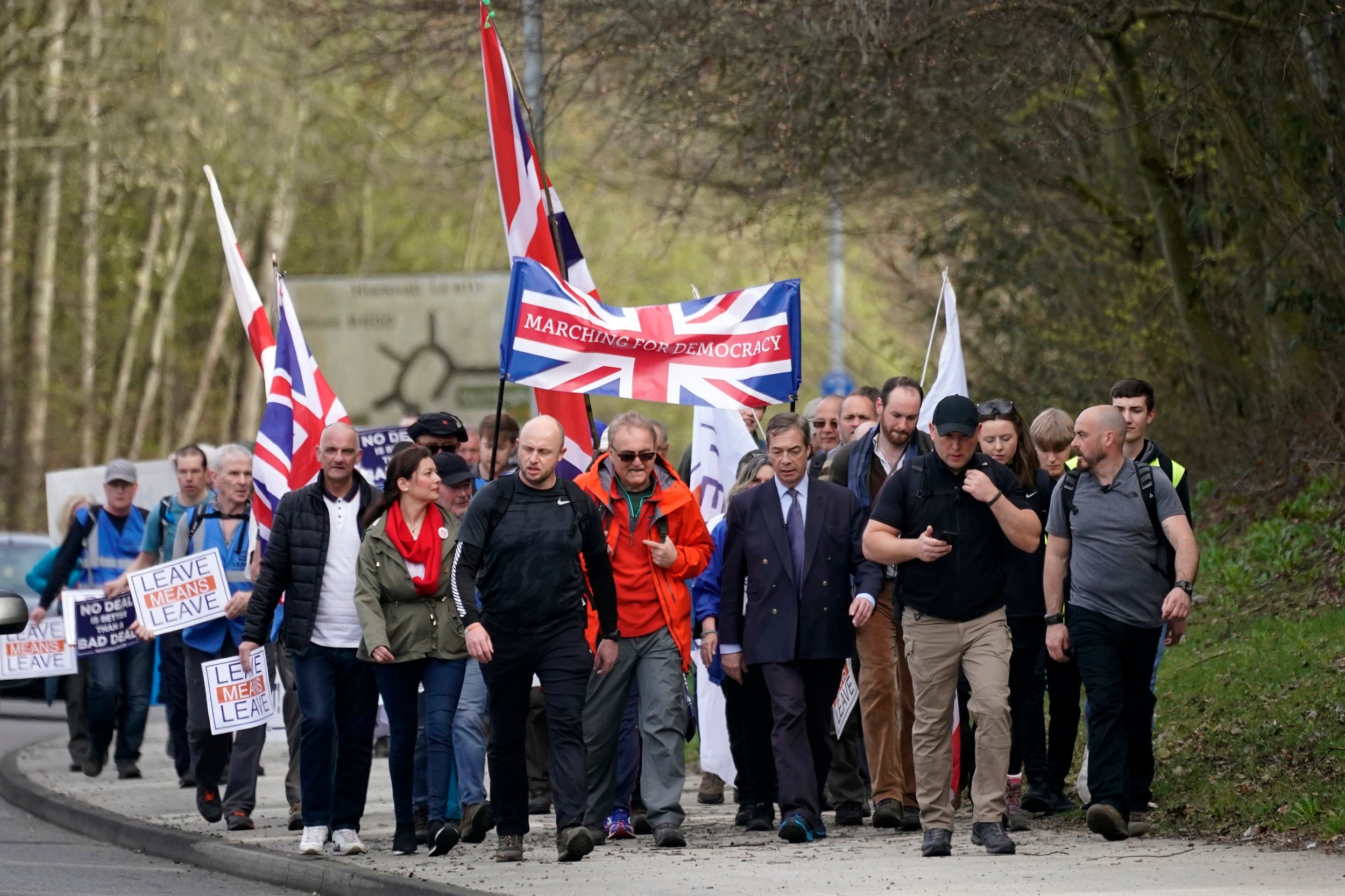
Chris introduces me to other cabbies who share similar stories. Many are scrabbling to make a living, all with anger directed at politicians. None of them will now vote Labour, none has a good word to say about Jeremy Corbyn. Like almost everyone else I met, they all seem to have voted Leave. (“I voted Leave, but not coz I’m racist,” one of his friends tells me. “I’ve got two Bengalis drive for me, they’re good workers most of ’em. But I think the people who voted should be making the rules, not other people.”) Some, like Chris, are now placing their faith in the town’s new Conservative MP, Ben Bradley.
I can’t escape the feeling, though, listening to Chris and his comrades, that the town seems to be slowly dying. “Mansfield market used to be amazing. Brilliant. Absolutely buzzing. And she killed it,” says a driver, referring to Kate Allsop, the town’s former mayor. He then mentions his son, who’s now 11, saying: “There’s nothing round ’ere for ’im. I’ve got no faith in Mansfield getting better. Not in the near future.”
“The young go to Nottingham,” Chris later admits, as we pull up outside a now-closed multi-storey car park by the town’s bus station. Research by anti-racism and anti-fascism group HOPE not Hate’s research has suggested that the young that get an education – certainly in other struggling towns – do leave. A teacher I spoke to in the town admitted as much. “We’ve got kids raising kids. They’ve not got pride in the area that they live in. They’re very blinkered to some of the good stuff. The biggest problem is raising their aspirations.”
Chris points out a near-empty shopping centre and names the shops that have now closed or are threatened with closure. An elderly woman walks by, dragging on a cigarette, asking if the cab is available. Chris shakes his head, though whether at her or me I’m not sure.
Before he drops me off, Chris talks of the town sparkling, because of the glass in the sandstone when the sun hits. “The council don’t even see the potential of the wonderful historic buildings in Mansfield… they don’t even see it.”
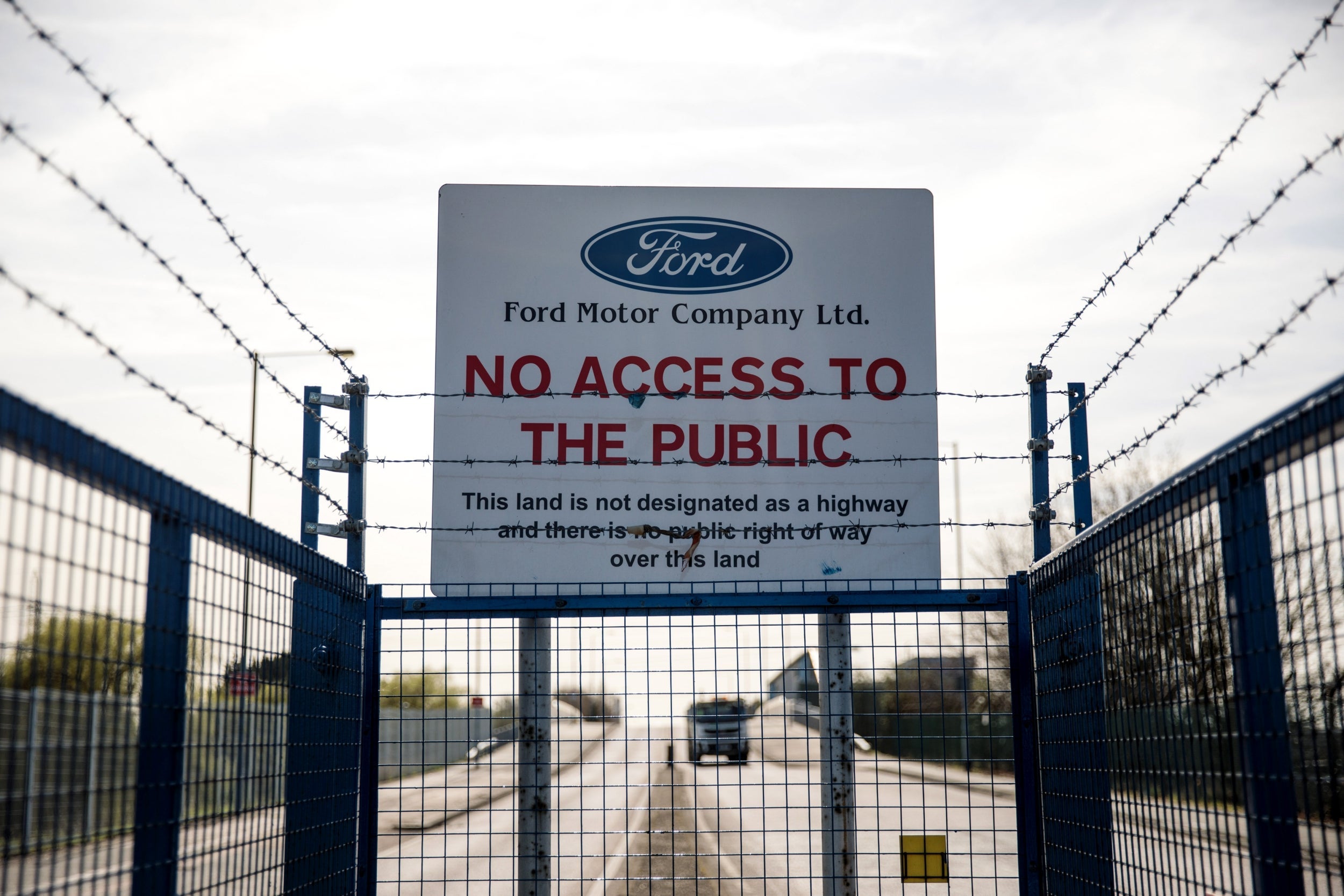
It’s all to do with immigration
A litter of independent shops cluster around Dagenham Heathway Tube station. African hairdressers, a betting outlet, cafes serving all-white clientele, a fishmongers busy with hijab-wearing women; there are worlds within worlds here, layered one on top of the another… but how much, I wonder, necessarily mixing?
Mansfield feels far away. Even though both have strong white working-class communities, this is still London. Yes, Dagenham voted to Leave, and also lost its main employer. But its high-profile MPs, Margaret Hodge and Jon Cruddas, are Remainers. Despite its white, working-class image, the borough has become one of the capital’s most diverse, with 130 cultures. Its population turns over at astonishing speed: every year, about 8 per cent of residents move out. While 62 per cent of residents voted Leave, this was on a 38 per cent turnout. There seems a far greater split between young and old here, newcomers and more settled communities – even between one set of minorities and others.
During my investigations into the BNP in 2006, I’d visited Me An’ O’Brien’s, a working-class boozer just off the Heathway, the long road splitting Dagenham from Barking and heading north/south down towards the Thames. Next to the thundering asphalt of the A13, it was here in this ward that the BNP had once pinned its electoral hopes.
The pub’s exterior is as nondescript now as it was then, just a single large room inside, two TV screens blaring out the horse racing and football to a range of mostly white, middle-aged punters clustered on bar stools. The accents are deep cockney. At the door a sign somewhat hilariously warns that this is a “private members club”. Me An’ O’Brien’s name was inspired, so the former landlady says, by a James Joyce novel. What had changed since I last visited, I wondered?
“The area has really declined big time. It really has,” says Caroline Powell, the manager, in her thick London drawl. “The people have changed. And the actual area is just so run down. Yeah. Look up there!” she points outside. “The fly-tipping is just unbelievable. It’s shocking.”
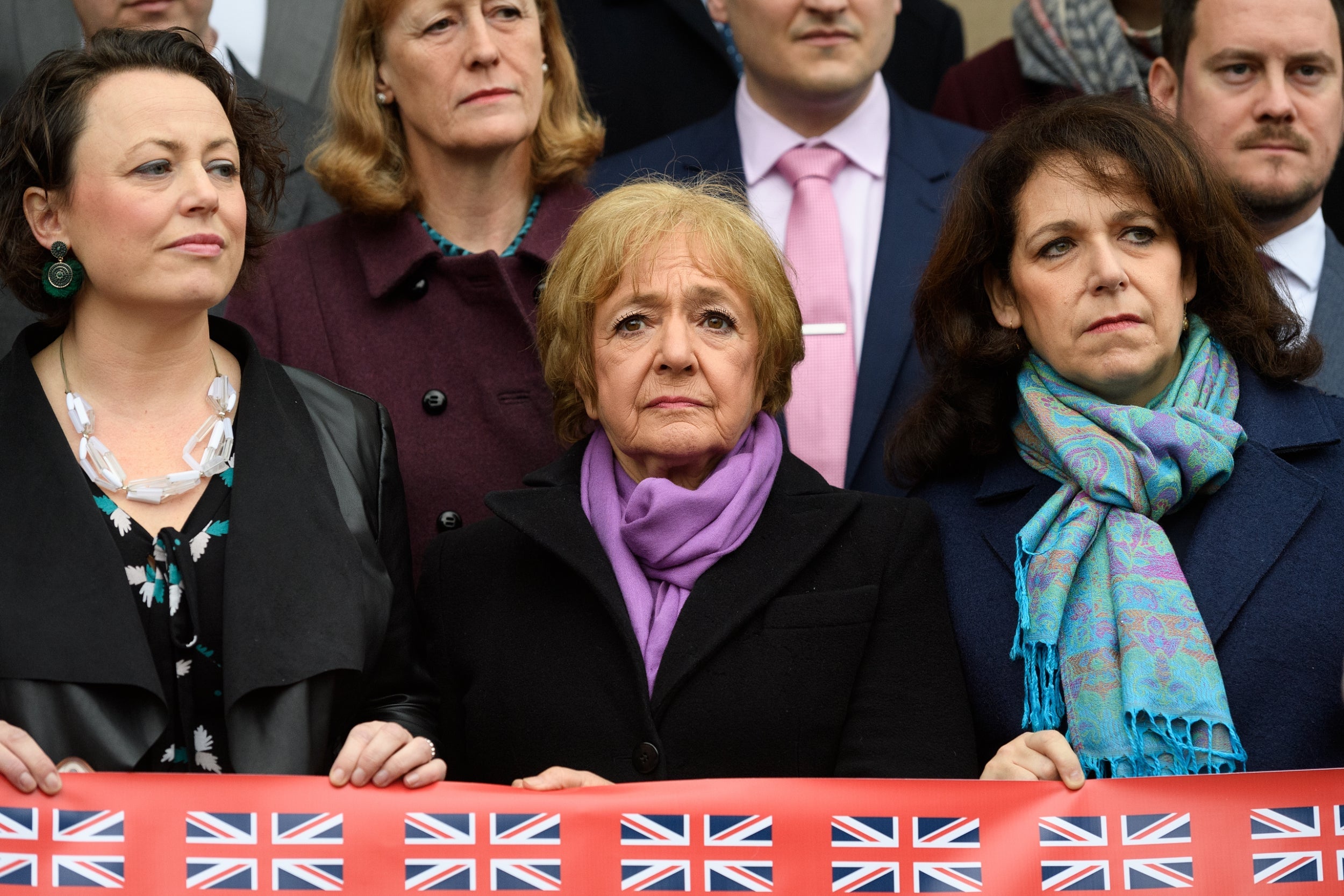
Others nod around her. Caroline has been here 23 years. “In the last 10 or 12 years, it’s unbelievable how much it’s changed. If you go up the Heathway, that used to be a lovely little shopping area… now it’s horrendous. There’s a lot of Romanian gypsies up there. You gotta watch ’em.”
“Gotta watch ’em,” repeats Andy, a crane driver to my right. “They’re just thievin’. Just thieves. You leave your jacket there, you’ll be saying ‘where’s me f***in’ pen gone?’,” pointing to my pen and notepad. They both complain about Africans and east Europeans drinking in the little shopping district outside the pub.
“It’s all to do with immigration,” Caroline claims. “It really is. It really is. This area has declined since we’ve had an influx of immigrants.”
But didn’t others choose to move out, taking advantage of the right-to-buy their former council-owned homes? “Most of them who did right-to-buy have all moved out of the area,” says Caroline. “All movin’ out,” she repeats, pointing towards Essex and the coast.
The similarities with my Mansfield conversations are striking. Of terrible change. Newcomers representing threats. Hard lives and economic struggle.
Breathing in the chilly dusk air, I decide to clear my head and dive into a cafe just a few doors down. Vida & Sons has a steady stream of customers, mainly young men, clearly most from central or eastern Europe. It’s a Lithuanian cafe, part of an expanding chain of businesses which includes an east European-stocked supermarket next door – one of seven now – and is run by Grintale Kalinauskaite, a slim agricultural graduate in her twenties from Lithuania.
When I tell her where I’ve just been, she smiles and rolls her eyes. There are problems here, she concedes, but the atmosphere is a world away from the Alamo-like conversations of the pub.
We chat for a short time and I hear of her travels here, her work, her plans. Living in Grays, further east, she’s moved to the UK to be with her husband, in the construction sector, and she says there are no plans to leave. Britain is now her home, Brexit or no. As I sit back and eat, I mull over her words and one thing strikes me: it’s hope. Her words exude hope.
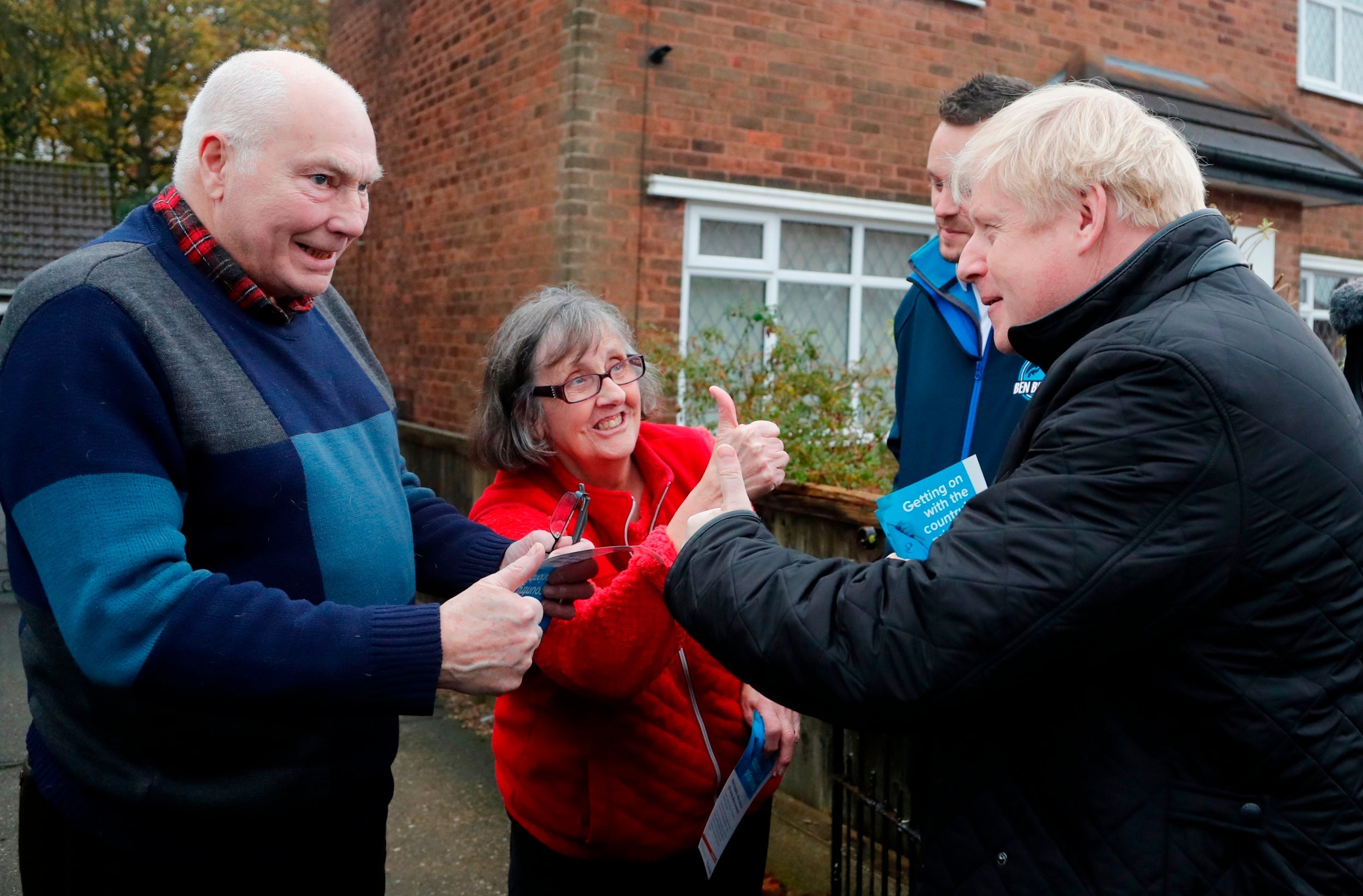
You can learn from the past – don’t live in the past
I leave Mansfield on a chilly December evening, the polls close as the activists and MPs continue descending on the area and on nearby Ashfield. I didn’t know it then, but the Conservatives would end up winning both, delivering a body blow to Labour and “Project Corbyn” in some of the once-deepest Labour heartlands.
There is a beautiful sunset as my train pulls out, but could the young, like me, also be leaving here? Nottingham had been on everyone’s lips (“You look to Nottingham and you see it getting bigger and getting better, and you look to Mansfield and it hasn’t changed,” one twenty-something planning to move had told me). Had I been witnessing a town in terminal decline… or was there the chance of renewal?
“It’s a bit run down, isn’t it. But people have got to look to the future, stop looking at the past.” These were the words of Jamie Germain, a taxi owner from Guernsey I’d met with Chris Riley. He’d held a rueful smile as he’d said them. “Looking backwards ain’t gonna get anywhere. You can learn from the past – don’t live in the past.”
And as my journey comes to a close in Dagenham, too, I find myself staring at the outside of a small social club in Scrattons Farm, just south of the A13, and its tangle of roundabouts and flyovers. Behind us, unseen, lies what were the docks, regeneration now spreading as the flats and homes Margaret Hodge had mentioned rise up.
It was here, in these rows of pebble-dashed housing, some well-maintained, others with rubbish strewn outside, that in 2006 I’d listened to angry, white men spit their despair and hatred of the outside world as the BNP activists smiled. But now, literally two doors away from the club’s spotlit entrance, I’d just finished speaking with Johnson Gbagbo, a pastor of a local church. A Ghanian, he was a civil engineer who’d settled here at almost the exact same time I’d been in that social club, listening to the words of violence and fear.
He had nothing but kind words to say of his neighbours, including the white family who held his keys during the holidays. His daughter, Eileen, 20, studying to be a journalist, talked of her passion for alleviating poverty through the church with its food collections and youth engagement work.
Even while poverty “remains so stark – even where they are building houses you see people sleeping on the streets, people begging. It’s really sad. And it’s very widespread” – times were changing. Crime was dropping, they both said, and for Eileen – who’d volunteered with Hodge – it was her generation who were going to be the change.
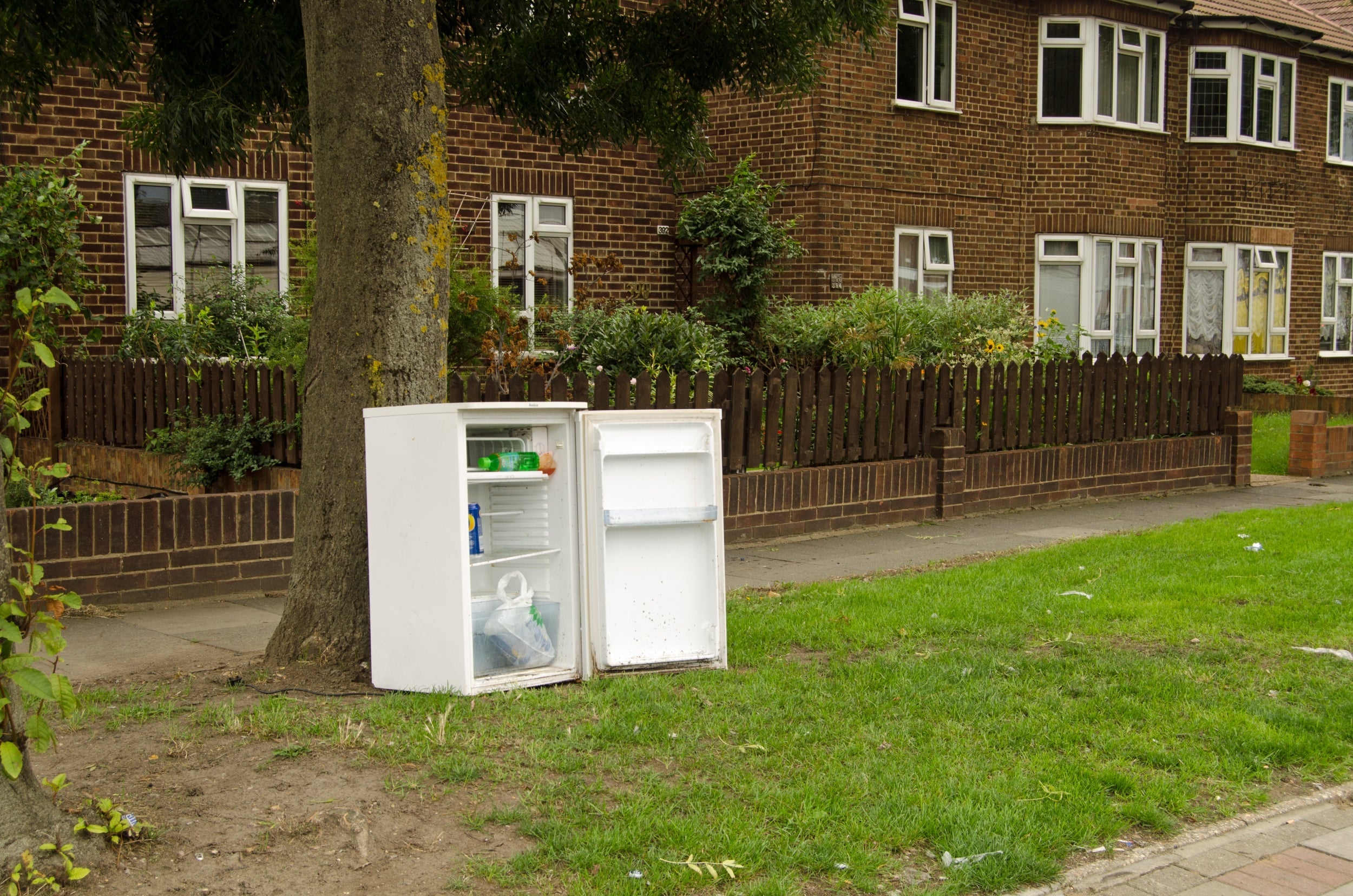
“Yes, I think it is up to my generation. We voted overwhelmingly for Labour, because we are concerned about poverty, because we are concerned about job security. It’s up to us to be the change we want to see.”
There are other green shoots of hope too. The council here has helped fund a £7m, five-year experiment, called Every One, Every Day, which has opened several shops across the borough as places for people to meet, discuss ideas and launch projects. In an old printers’ warehouse on Thames Road in Barking, the scheme has created a gigantic new workshop where people can start collaborative businesses in areas as diverse as food, clothing and renewable energy. Local people have leapt on it, with the scheme incredibly popular with women.
With Hodge returned with a comfortable, albeit reduced, majority and Jon Cruddas fighting back to win by a few hundred votes next door – the swing against him was considerably less than in other Labour Leave areas – one activist out in Dagenham and Rainham said: “We bucked the national trend – much to the annoyance of the Tories.”
It may not be a ringing endorsement for the politicians’ platitudes, but as the black length of the Thames glimmers close by, perhaps, just perhaps, there are also glimmers of hope for the people of communities like Mansfield and Dagenham – for the unkindly named “left-behinds” – who have been ignored by too many for far too long.
This article first appeared in the HOPE not Hate magazine. Subscribe here: hopenothate.org.uk/magazine
Join our commenting forum
Join thought-provoking conversations, follow other Independent readers and see their replies
Comments